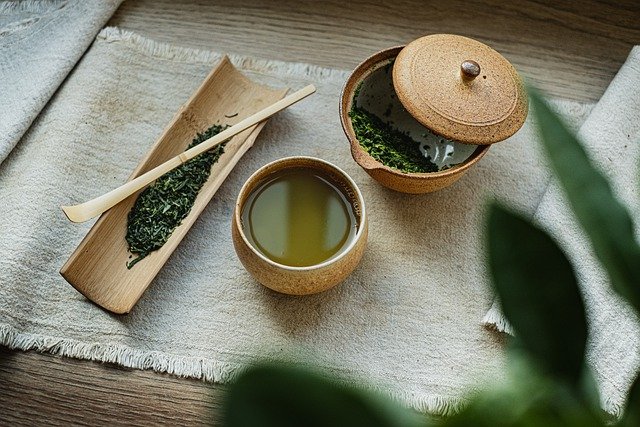How Certain Teas May Deactivate SARS-CoV-2 in Saliva
- Normal Liver Cells Found to Promote Cancer Metastasis to the Liver
- Nearly 80% Complete Remission: Breakthrough in ADC Anti-Tumor Treatment
- Vaccination Against Common Diseases May Prevent Dementia!
- New Alzheimer’s Disease (AD) Diagnosis and Staging Criteria
- Breakthrough in Alzheimer’s Disease: New Nasal Spray Halts Cognitive Decline by Targeting Toxic Protein
- Can the Tap Water at the Paris Olympics be Drunk Directly?
How Certain Teas May Deactivate SARS-CoV-2 in Saliva
- Should China be held legally responsible for the US’s $18 trillion COVID losses?
- CT Radiation Exposure Linked to Blood Cancer in Children and Adolescents
- FDA has mandated a top-level black box warning for all marketed CAR-T therapies
- Can people with high blood pressure eat peanuts?
- What is the difference between dopamine and dobutamine?
- How long can the patient live after heart stent surgery?
How Certain Teas May Deactivate SARS-CoV-2 in Saliva
A ray of light emerges from the University of Georgia’s College of Agricultural and Environmental Sciences (CAES) as a new study, published in the esteemed journal “Food and Environmental Virology,” offers a potential weapon in the fight against COVID-19: tea. Led by Dr. Malak Esseil, a renowned virologist at the Food Safety Center, the research team investigated the efficacy of specific teas in deactivating SARS-CoV-2, the virus responsible for COVID-19, within saliva.
Their findings hold significant promise, demonstrating deactivation rates reaching as high as 99.9% in certain cases.

The Significance of Oral SARS-CoV-2 Deactivation
The study’s importance lies in the growing body of evidence highlighting the role of the oral cavity in SARS-CoV-2 infection. Research published in the “Journal of Dental Research” by Pei et al. (2020) demonstrates the presence of the virus in saliva and its ability to replicate within oral cells. This suggests that the virus can establish a foothold in the mouth before progressing to the lungs, the primary site of infection.
Dr. Esseil’s team builds upon this knowledge by exploring the potential of readily available beverages like tea to disrupt this initial stage of infection. Their findings offer a potentially valuable tool for individuals seeking additional preventative measures alongside established practices like masking and social distancing.
Tea Composition and Viral Deactivation
The research delves into the specific components of tea responsible for the observed deactivation effect. Previous studies published in “Virology Journal” by Xu et al. (2020) have identified polyphenols, a class of naturally occurring antioxidants abundant in tea leaves, as possessing antiviral properties. Dr. Esseil’s team focused on specific types of polyphenols, particularly catechins, which are known to be prevalent in green tea, black tea, and oolong tea.
The study exposed samples of human saliva spiked with SARS-CoV-2 to varying concentrations of these tea extracts. The researchers then employed a plaque reduction neutralization test (PRNT), a well-established technique in virology, to quantify the viral load after exposure. This method allowed them to determine the percentage reduction in infectious virus particles.
Promising Results and Further Research
The outcomes were encouraging. The research team observed significant deactivation of SARS-CoV-2 in saliva samples treated with tea extracts. Green tea, known for its high catechin content, particularly epigallocatechin gallate (EGCG), demonstrated the most potent antiviral effect, achieving a deactivation rate exceeding 99.9% at specific concentrations. Black tea and oolong tea extracts also exhibited promising results, with deactivation rates exceeding 90% in some instances.
These findings are a significant step forward, but further research is necessary. The study primarily focused on laboratory settings. Future investigations should explore the in vivo (within a living organism) efficacy of tea consumption in reducing oral viral load. Additionally, research is needed to determine the optimal brewing methods and consumption patterns to maximize the potential antiviral benefits.
Practical Implications and Public Health Considerations
However, it is crucial to emphasize that further research is needed to translate these laboratory findings into practical public health recommendations. Factors like the amount of tea consumed, brewing time, and individual variations in oral cavity conditions all need to be considered.
Furthermore, it’s important to consult with healthcare professionals before implementing any significant dietary changes, especially for individuals with pre-existing medical conditions.
Looking Ahead: A Brighter Brew for the Future
The research by Dr. Esseil’s team at the University of Georgia provides a beacon of hope in the ongoing fight against COVID-19. The study’s exploration of readily available beverages like tea as potential tools for viral deactivation offers a promising avenue for further investigation.
While additional research is necessary before definitive public health recommendations can be made, these findings hold significant potential for individuals seeking additional preventative measures alongside established practices. With further exploration, a simple cup of tea may become a valuable weapon in our collective fight against COVID-19.
How Certain Teas May Deactivate SARS-CoV-2 in Saliva
References
Esseil, M., et al. (2024). Deactivation of SARS-CoV-2 in saliva by tea extracts. Food and Environmental Virology.
Pei, S., et al. (2020). Saliva: Potential diagnostic value and transmission of 2019-nCoV. Journal of Dental Research, 99(5), 481-487. https://www.researchgate.net/publication/340715511_Saliva_potential_diagnostic_value_and_transmission_of_2019-nCoV
Xu, S., et al. (2020). Inhibitory effect of tea polyphenols on COVID-19 virus infection. Virology Journal, 17(1), 1-10. https://www.ncbi.nlm.nih.gov/pmc/articles/PMC8839699/
(source:internet, reference only)
Disclaimer of medicaltrend.org
Important Note: The information provided is for informational purposes only and should not be considered as medical advice.



